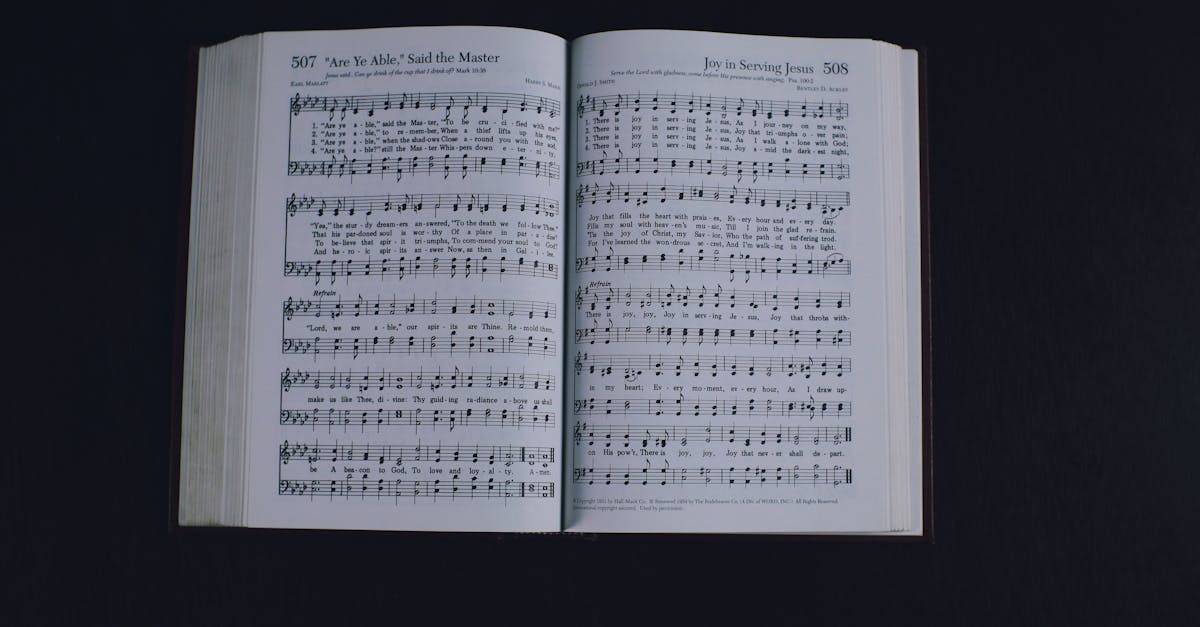Why Music and Movement Matter
Preschoolers are like little sponges, soaking up everything around them. Introducing them to God’s love using music and movement might just be the secret ingredient to nurturing their faith. Music and movement naturally captivate young children. It’s like when you see a toddler bop to the beat – that’s pure magic right there!
But seriously, these activities help children comprehend abstract concepts, like love, in a tangible way. Plus, music aids memory, so singing about God’s love could plant seeds that last a lifetime.
The Benefits of Music and Movement
- Physical Fitness: Dancing is exercise in disguise!
- Emotional Well-being: Joyful moments help reinforce a positive mood.
- Memory Enhancement: Music helps in memory retention.
Devote some time each day to a sing-along or a mini dance party. You’ll find that these joyful moments often become the highlight of both yours and your child’s day.

Choosing the Right Songs
Picking the perfect song requires a bit of detective work. First, consider lyrics that are simple and recurring so your little ones can catch on quickly. Songs with repeated phrases like “Jesus Loves Me” are classics for a reason!
Lyrics that portray God’s love, hope, and acceptance can become foundational truths for young minds. You can also explore options beyond traditional music; songs with different tempos or cultural rhythms can broaden their understanding and appreciation. Imagine their surprise and excitement when they discover new songs that speak to them!
Keep it fresh but familiar, like playing their all-time favorite but with a twist! Integrate music time into your routine. Whether during snack time, a car ride, or bedtime, constant exposure helps keep these messages close.

Making Music Time Fun
Remember how P.E. class was all about fun, not winning? Take the same approach during music and movement time with your preschooler. Designate a safe space at home for free dance or incorporate musical instruments like maracas or tambourines.
Let them lead with their preferences – if they want to jump like a kangaroo while praising, go for it! Substitute long lectures about love with interactive games. Try a ‘freeze dance’ game with praise songs, or act out stories with a moral. The goal is to enjoy, not endure.
Don’t worry if your voice sounds like a sheep bleating during a full moon; preschoolers love the participation, not perfection. Celebrate their enthusiasm, and don’t skimp on high-fives and occasional silly hats (trust me—it works!).

Handling Emotional Ups and Downs
Emotions can run high – one minute they’re ecstatic, and the next, they’re waterworks. It’s totally normal. Music is a fantastic outlet for their rollercoaster of emotions.
If they’re feeling upset or anxious, use calming music to soothe. Church hymns, lullabies, or even instrumental tracks can help bring them back to center. Tap into their moods rather than trying to alter them entirely. For example, if they’re feeling hyper, channel that energy with faster-paced, uplifting songs that talk about joy and love.
It might sound bizarre, but recognizing their feelings through music teaches empathy and understanding. Approach these moments as opportunities rather than challenges. You’re building bridges to their hearts, one musical note at a time.

Practical Tips for Parents
You’ll want to mix it up – kids love variety and surprises! Create a playlist of their favorite songs, integrating seasonal ones during holidays. This keeps learning fresh and exciting.
Consider investing in child-friendly musical instruments. Here are some great additions:
- Mini keyboards
- Drums
- Xylophones
These instruments are tactile and make learning hands-on.
Add movement activities that pair with the songs. It could be as simple as clapping on cue or creating movements specific to the lyrics.
Collaborate with other parents for song suggestions or combine family music playdates for a change of scenery. Share experiences in online forums or parenting groups too. The camaraderie is comforting, knowing other parents may also have wild dance sessions in their living rooms.

Engage with Your Kids
Interaction is key when teaching preschoolers, especially with abstract concepts like God’s love. As you dance and sing, pay attention to their reactions. Do they giggle when you twirl, or seem focused during a particular verse? Use these insights to make experiences more impactful.
Encourage them to express how they felt about the music or movements. Simple questions like ‘What did you think of that song?’ prompt dialogue. Get gently theatrical if need be; dramatic storytelling with props can make the experience richer.
Remember, you’re the faith guide, not a performer, so relax. By nurturing their curiosity and involvement, you’re planting spiritual roots for them to grow.
Invite your kids to even lead sometimes; they might surprise you with creative spins on what they’ve learned.

